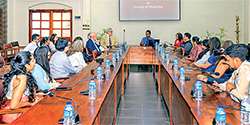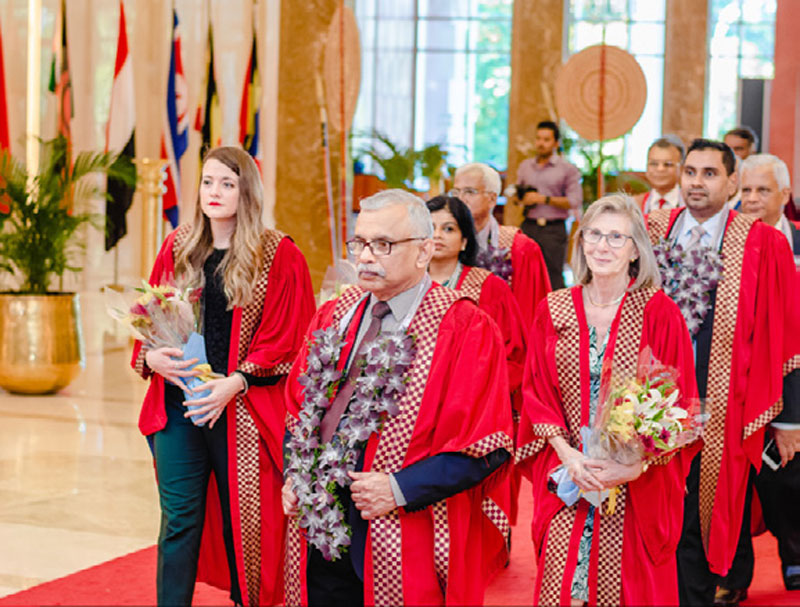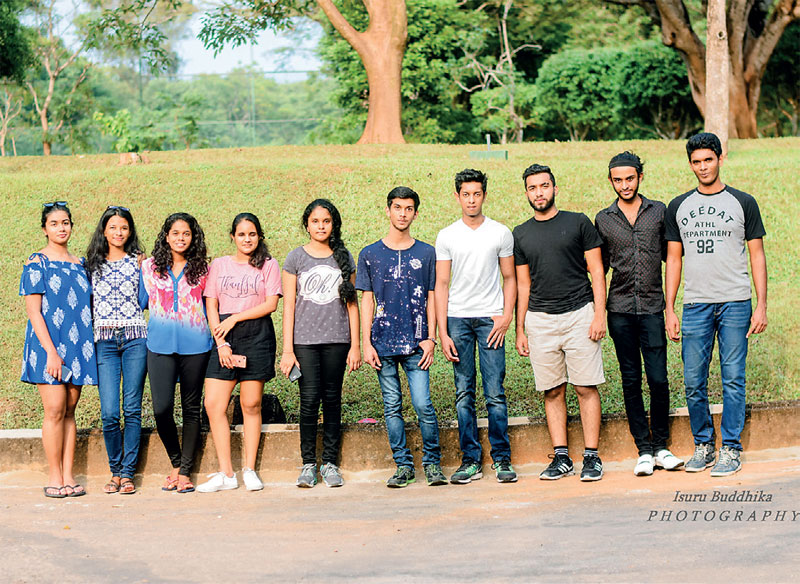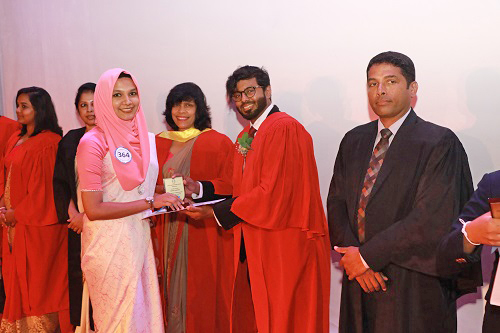A Taste of International Student Life- Served elegantly by David Samuel
 Students share a dream of receiving the best education from a far distant country, away from their motherland. The notion seems alluring, but the novice mind fails to comprehend the unseen implications that need to be considered, before opting to adapt to an entirely new lifestyle, in a country that is entirely foreign. A student who wishes to engage in the venture should go in with all the facts, equipped to face the inevitable, with apt support from their caring parents. David Samuel graciously stood up and shared a few words of his wisdom, with the goal of making life easier for these students, as well as their parents. The first mystery that needs to be addressed is, ‘who is David Samuel?’.
Students share a dream of receiving the best education from a far distant country, away from their motherland. The notion seems alluring, but the novice mind fails to comprehend the unseen implications that need to be considered, before opting to adapt to an entirely new lifestyle, in a country that is entirely foreign. A student who wishes to engage in the venture should go in with all the facts, equipped to face the inevitable, with apt support from their caring parents. David Samuel graciously stood up and shared a few words of his wisdom, with the goal of making life easier for these students, as well as their parents. The first mystery that needs to be addressed is, ‘who is David Samuel?’.
The name has been an icon for those who know the person’s humble stature. He is the Founder, Director, and CEO of the Business Advisory Group in Sri Lanka. Currently, he manages the interests of several higher education institutions in Sri Lanka and South Asia region and also spearheaded expansion strategies of leading education providers in Australia, Singapore, India and now expanding into China market. He also held the position of Business Development Manager for South Asia Education and Global Value Chain at the Austrade, Australian High Commission in Colombo for over 9.5 years to support Australian businesses to expand their operations in Sri Lanka. David also worked for the British High Commission / Foreign and Commonwealth Office in Colombo, DIMO and Toyota Motor Corporation in the Middle-East covering G7.
David was awarded the highest recognition by the Australian Government in the year 2014 with the Australia Day Achievement Medallion for his services to the Australian Public Sector and was one of the first to be recognized in the region. He had his university education in economics, international trade, and human resources. These achievements are impressive on their own rights, but what matters most, is the fact that he, himself is a responsible, and loving parent, who has raised a child, who is blooming under his watchful guidance. A parents’ word, is invaluable since it is not an expression of statements, but an offering of wisdom gained through personal experience. Let’s dive in into the platter of insight, which he elegantly shared, and after perusing through, the reader might be enlightened on how to prepare for what is to come, when it does come eventually.
What advice would you give to students who study abroad to manage their new lives?
As a parent, my aspiration is to put my child on the map. The responsibility of a parent is to give the child all the benefits that a parent should give in terms of helping the child to study well. How do you do that? Firstly, you have to create a safe environment where you study and learn without worry. Secondly, all the constraints need to be acknowledged. The child has certain liberties whilst living with their parents, but once they move out of the house, such liberties have to be sacrificed. The child gets to know new friends, colleagues, and classmates, but it has to be a ‘pick and choose’ situation for the young child, and it’s common sense.
Sometimes when something is done, the fact whether it is done the right way or not comes as a gut feeling. At times they would have to test the grounds. It is difficult for a parent to have complete control of their child, but on the flip side, parents have to believe in their children and give them freedom. However, freedom has its own limitations. Continuous engagement with the child is ideal. When a person works in an organization you need to maintain a repo with your immediate peers and senior management, or else it might adversely affect your career progression.
Likewise, parents and their children should have that level of communication. Sadly, the lack of communication is a feature that is predominant in the current generation. There are times when the parent wants to communicate with the child, but the time chosen might clash with the child’s study/work schedule. This means that the parent is unaware of their own child’s daily routine. Parent and child live in two different geographical locations and that needs to be comprehended in order to properly manage time. Understanding each-others constraints are vital.
At the end of the day, the parent has to be a friend for their child. They have to give the child the room, and the opportunity to open up regarding their personal matters. That is a core reason for a child to get misguided in their approaches. A patience hearing makes a big difference. Sending the child abroad does not make them qualified. Sometimes they might, but most of the time, the chances to get misguided are extreme, and that will make them miss out on the bright side of life. They need to be taught how to balance out the necessities and non-essentials.
What is the responsibility of the parent after the child is sent abroad?
Some parents assume that their duty is fulfilled once the child leaves; thus naturally convincing themselves that the child will manage on his or her own. That is hazardous since that is when the actual duty starts. Irrespective of professional commitments, the priority of a parent is their children. As a parent, I would be failing my duty if that relationship with my child is non-existent. The child should get the luxurious sense of relief and urgency to tell their issues to their parents. Some parents deny that option. That makes them closed and emotionally distant. Imagine their situation.
The child could have friendly room-mates and a gang of supportive peers. On the other hand, the child could be isolated, and at some times, might have certain heat and misunderstandings with their peers. In that case, the child has nobody to turn to, and they have to cope with that lifestyle until graduation. Such a scenario leads to depression. The feeling of isolation causes mental distress. Although all the luxuries and amenities are present, the mental relief is taken away from them. If the child doesn’t feel comfortable to call up the parent and unload their misery, they are denied of that mental relief.
For them to build their future, their parents should be their foundation. If we don’t become the foundation, how will the child go far into the future? Sometimes, the child might wish to be detached, and attempt to find their own way. That is great, and the parent should let the child be independent. That does not mean that the parent should abandon the child entirely. Let the child experiment, but always keep a watchful gaze. Observe without interference, and when the time is right; that is if the child makes a blunder, do not hesitate to make the required intervention. The parent should be able to decipher the child’s mood through the tone of the voice, text or behavior.
Sometimes, a parent could be paranoid. That is not a bad thing since you have the child’s best interest at heart. That level of understanding means a lot to the child. At times, the calculation might be awry, but at the end of the day, the message that gets delivered to the child is that the parent actually cares and that he or she is not alone. Parents should also realize that this is a two-way process. If they wish for the child to open up regarding their issues, the parent should thereby return the favor. Both parties should be transparent regarding each-others predicament. If a parent is sick, tell the child. If any misfortune befalls, do not shy away from informing the other party. If the parents are facing financial difficulties, deliver the message in a gentle manner.
The parent cannot expect to understand the child if the child cannot understand their parent. Do not put high concern over financial matters. Life abroad can be expensive at times. If a parent strongly advises a child not to spend on himself or herself, that will definitely affect his or her social life. What needs to be understood is the fact that a student cannot live a ‘budgeted life’. Unexpected expenses might crop up when its least expected, and if the child is penalized for acting according to the situation, it affects the students’ social life, mentality, and it creates a bridge between the child-parent relationships. On the other side, the child should know their parent’s financial capacity and spend only the required amounts.
It is always nice to be thrifty, as long as the child doesn’t lose face amongst peers. Overall, the stay might seem tedious to both parties. The child has to learn to become independent and make proper and responsible decisions, and the parent has to deal with separation anxiety and guide the child whenever a helping hand is required. What needs to be realized, is that all of this, is to serve for a greater purpose; a purpose that would earn dividends to a wide range of stakeholders (themselves, parents and the entire society once receiving employment). The words of David Samuel shall linger on the hearts of each parent, and his effort would not be in vain, if at least a single-family takes the message to heart, and act according to the tips and wisdom that has been graciously served.
Randheer Mallawaarachchi










































.jpg)
.jpg)
.jpg)
.jpg)
.jpg)
